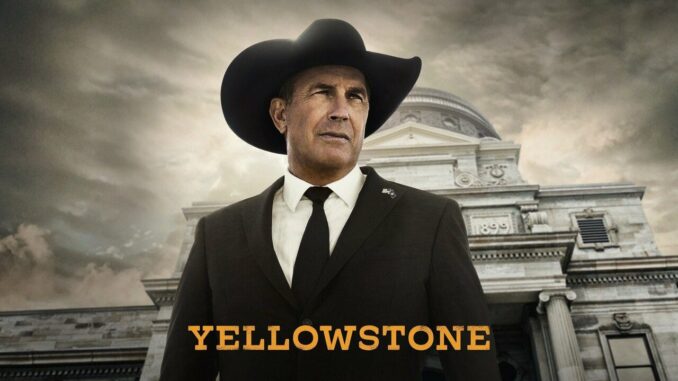
Riding into the Sunset: Kayce Dutton's Spinoff and the Echoes of Yellowstone's Defining Tradition
Yellowstone, a saga of land, legacy, and brutality, has carved a significant niche in the modern television landscape. More than just a neo-western, it's a study of power dynamics, familial loyalty, and the relentless struggle to preserve a way of life clinging precariously to the edge of extinction. And at the heart of it all, defining its very soul, lies a crucial tradition: the embrace of the moral grey. Now, as Kayce Dutton prepares to embark on his own spin-off adventure, the showrunners are wisely honoring this core tenet, ensuring that his narrative will resonate with the same compelling complexities that have defined Yellowstone's success.
Yellowstone doesn't traffic in simplistic heroism or villainy. Characters are flawed, their motivations often contradictory, and their actions frequently blurring the lines between right and wrong. John Dutton, the patriarch, is a ruthless protector of his land, willing to employ violence, manipulation, and even illegal tactics to secure his family's legacy. Beth Dutton, a force of nature disguised in silk, is driven by a righteous fury born from past trauma, often resorting to scorched-earth tactics to achieve her goals. Even Rip Wheeler, the loyal enforcer, a man seemingly bound by unwavering loyalty, is a product of violence and a willingness to embrace darkness. This embrace of morally ambiguous characters, willing to do what is "necessary" rather than what is "right," is a franchise tradition that harkens back to classic Westerns like "The Wild Bunch" and "Unforgiven," films that deconstructed the romanticized image of the cowboy and explored the brutal realities of the frontier.
This tradition is not merely about creating anti-heroes. It's about exploring the nuances of human nature under extreme pressure. The characters in Yellowstone exist in a world where the law often fails, where justice is subjective, and where survival necessitates difficult choices. They are constantly wrestling with their conscience, weighing the consequences of their actions, and grappling with the inherent contradictions within themselves. This internal conflict is what makes them compelling and relatable, even when their actions are morally reprehensible.
For Kayce Dutton, this moral grey area is particularly pronounced. He is a decorated Navy SEAL, trained to kill and follow orders, yet he struggles to reconcile his military past with his desire for a peaceful life on the ranch. He is torn between his loyalty to his family and his own sense of justice. We see him wrestling with the violence he's capable of, the toll it takes on his soul, and the constant battle to maintain his own moral compass in a world that seems determined to corrupt it.
Therefore, the promise of Kayce’s spin-off, and its potential success, hinges on its adherence to this established tradition. It can't simply be a tale of a good man fighting for what's right. It must delve into the complexities of his choices, the compromises he must make, and the sacrifices he must endure. Will he ultimately succumb to the darkness that seems to permeate the Dutton family? Will he find a way to break the cycle of violence and create a better future for his son? These are the questions that should drive his narrative, forcing him to confront the moral grey that has defined his journey thus far.
By continuing to explore this moral ambiguity, the spin-off has the potential to not only honor the tradition that made Yellowstone a cultural phenomenon but also to deepen our understanding of Kayce's character and the challenges he faces. It's an opportunity to explore the cost of violence, the burden of responsibility, and the enduring power of hope in a world that often feels hopeless. Ultimately, the success of Kayce's spin-off will depend on its willingness to embrace the complexities of the human condition, the messy realities of survival, and the enduring power of moral grey – a tradition that has helped define Yellowstone and its enduring appeal. As Kayce rides off into the sunset, he carries with him the weight of that legacy, promising a story that will be as challenging, compelling, and ultimately human as the show that spawned it.
